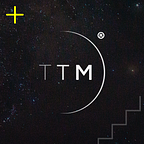Blockchain in video game industry (part 2)
In the first article we were talking about blockchain-based games: how are they organized and what is the point of their existence. We also covered in-game item tokenizing matters and showed who profits from it. Today we will talk not about playing video games, but about games creation. Another topic is closer to medicine — as it’s about the most addictive kind of games, gambling.
One of the main features of blockchain is that it can provide digital signature go any digital asset: game item (like rare gear or sword), a picture of a kitten, nice graphic, a character’s skin, etc. Once this signature been created and stored in the blockchain, it’s giving the opportunity to see the ownership history of an item from the moment the signature is created. However, if we’re talking about content creation, the in-game industry it’s created not only by developers. Lately, with the rise of independent projects (indie-games), there is a big part of the game creation process, that could be managed by the game community or even a group of enthusiasts. And this is the exact point where blockchain starts to play a notable role.
Anything created by users is actually kind of art. It could be a new map for real-time-strategy or shooter; it could be a skin for the character; mission for the campaign you name it. You can sign it and store the ownership data in the blockchain — and no one could use your masterpiece without your permission. In the situation where business (game company) feels like it can profit with it, blockchain will make your work protected by copyright, and game company will pay you a fee — and you’ll be the one asking the price for it.
Is that good or not — we don’t know yet as this market is only in the development stage. From one point of view, there is a huge field for independent artists and game developers. Another good part is that there is a chance for indie-games to become really indie — and everyone who puts efforts in their creation could earn some coins.
But there is another side of this medal. If, for example, someone is creating a really good map for Starcraft or Counter-Strike and wants to get his coins — guess who would be a payer in this situation? I don’t think game developers will allow you to use any paid content for free — and will put these expenses on players.
In the very end tokenizing someone’s work is a good thing — as it is making game creation a bit closer to art, which, for example, digital photography is. And when someone will be arguing with his mom about proper sleep time — he will have at least one more valid argument.
And now let’s see if there are some changes that blockchain brings to any kind of games of chance: casino, betting, gambling etc. Of course, there are hundreds of projects that allow you making bets or pay in cryptocurrencies, but that is not the key feature here, huh?
As it is usually said (by founders or landing pages of gambling projects), a game of chance market is facing two major problems: lack of trust and high transaction costs. Blockchain, as philosophic stone, is expected to resolve both of them. Let’s dig deeper into that.
Founders of all gambling-like projects, that implement blockchain to their structure, are stating that it brings “transparent betting” or “fair play” to casino games. That is going to happen thanks to smart contracts, which will “transparently encode the game’s rules and run automatically to allocate winnings”. Do you see anything wrong here? No? Ok, let me explain. Black Jack is one of the fairest games in the casino — and casino still wins for a very easy reason. It has no funds limitation, and the player has. So it doesn’t really matter how much is the bet — casino can survive it, and as people are quite greedy in general, at some moment a there appears the last bet, after which the player is bankrupt. But it’s the only game like this, with all the rest casino wins. Simplifying this to an absurd, there is a controller, which says to all machines in the casino, how often they should win. In a good casino it is usually set to 49–55%, depending on the day of the week and time of the day (earlier — lower).
That is valid for offline casinos only, as online casinos are a completely different business. There is no associated revenue like hotel rooms, there are no free drinks to keep high level or risk, there are no beautiful ladies to help with retention. Moreover, people that play online don’t have that much free money to spend — so bets are very low, comparing to online casinos. All these factors usually make casino winning rate around 70–80%. All the idea of bringing blockchain there is based on making casino transparent as a business — to make players trust them. Do you think 70% winning-chance for a casino would make players happy if they see that? Certainly no, I don’t think even 51% will. Any kind of this transparency will just make an audience move to a casino with no blockchain, but a huge text on the main page: “We are fare, all chances are equal here!”.
